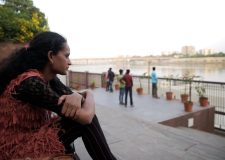Delegates arrive for the Brighton Declaration of Human Rights
Hundreds of representatives from 47 countries are due to start arriving in Brighton today (Tuesday 17 April) for a three-day conference on human rights starting tomorrow.
The city is hosting a meeting of the Council of Europe to agree a change to human rights law to be known as the Brighton Declaration.
The aim is reform the European Court of Human Rights which has been criticised for becoming bogged down with trivial cases and interfering in matters that are a matter for national governments.
Critics fear that the court’s powers will be curtailed, removing protection in particular from people in Russia, Turkey, Ukraine, Romania and Italy – the five countries that generate the most cases.
The Prime Minister David Cameron made his case for reform in January, saying that the court should meddle less in Britain’s business.
 He said that public unease about some of the court’s decisions was putting at risk its ability to defend human freedom and dignity.
He said that public unease about some of the court’s decisions was putting at risk its ability to defend human freedom and dignity.
Mr Cameron’s cabinet colleague Kenneth Clarke, the Justice Secretary, is coming to the coast to host the conference and sign the expected Brighton Declaration.
Today Parliament is due to publish a report supporting the Prime Minister’s criticisms by Murray Hunt, the legal adviser to Parliament’s Joint Committee on Human Rights.
The report says: “Something needs to be done to redress the debilitating democratic deficit that afflicts human rights.
“It depends primarily on unelected judges providing legal remedies for individuals whose rights have been violated, usually, by elected decision-makers.
“As a result, there is a genuine and profoundly felt impression that elected decision-makers are not taken sufficiently seriously by courts, and human rights discourse is everywhere bedevilled by a permanent crisis of democratic legitimacy.”
One controversial ruling was that Britain’s blanket ban on prisoners voting was unlawful. MPs debated the issue in the House of Commons in February last year with 234 voting to defy the judgment and only 22 supporting it.
This year some Conservative MPs called for Britain to withdraw from the European Convention on Human Rights after the court blocked the deportation of Abu Qatada to Jordan.
Qatada has been described as the right-hand man in Europe to the late al Qaeda chief Osama bin Laden and was freed from prison after the ruling.
Mr Clarke dismissed concerns that Britain would pull out of the convention or defy the Strasbourg court.
He is though expected to support Mr Cameron’s concerns about the growing backlog of cases which topped more than 150,000 at the end of last year.
In the court’s first 40 years the judges were asked to deal with 45,000 cases while in 2010 alone it was asked to handle more than 61,000.
About a quarter of the outstanding cases come from Russia and critics have said that if human rights rulings were translated into law, fewer cases would be sent to Strasbourg.
The conference at the Brighton Centre is due to end on Friday (20 April).





















